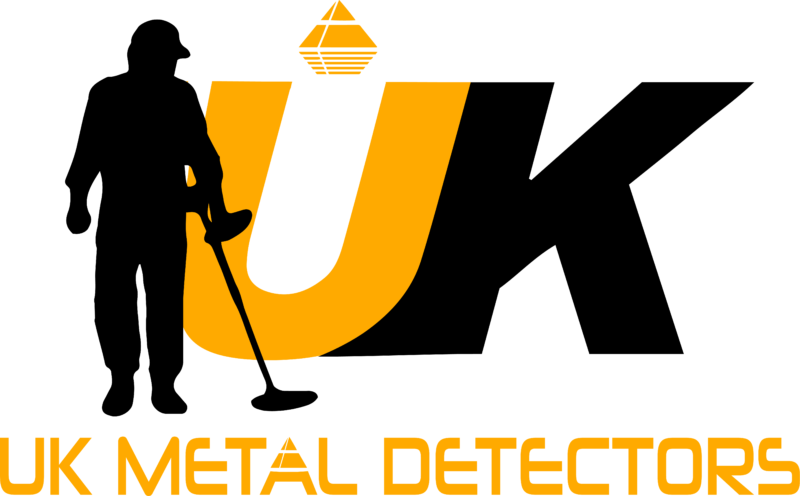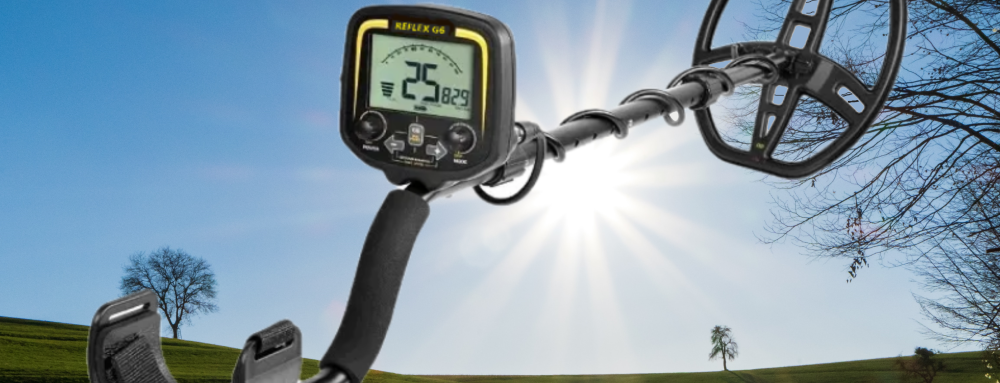Metal Detector Coil Types
By T.K | 26th January | 2020
Metal Detector Coil Types
In this article we’re going to look at Metal Detector Coil Types, the two main search coils for metal detectors, DD versus Concentric Coils, versus size. It’s a question I get asked often so let’s get into it, to start with lets look at a Concentric Coil like this 9.6-inch EDGE POWER Coil. The way a Concentric Coil works is from the outer edge down into a cone, this is where the signal is going and how the signal leaves the Coil and goes into the ground (see image).
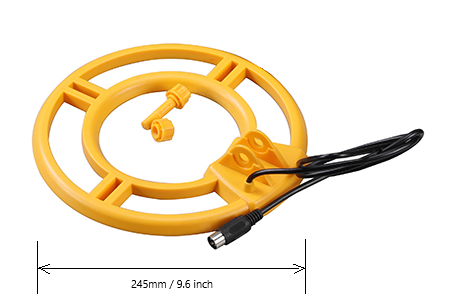
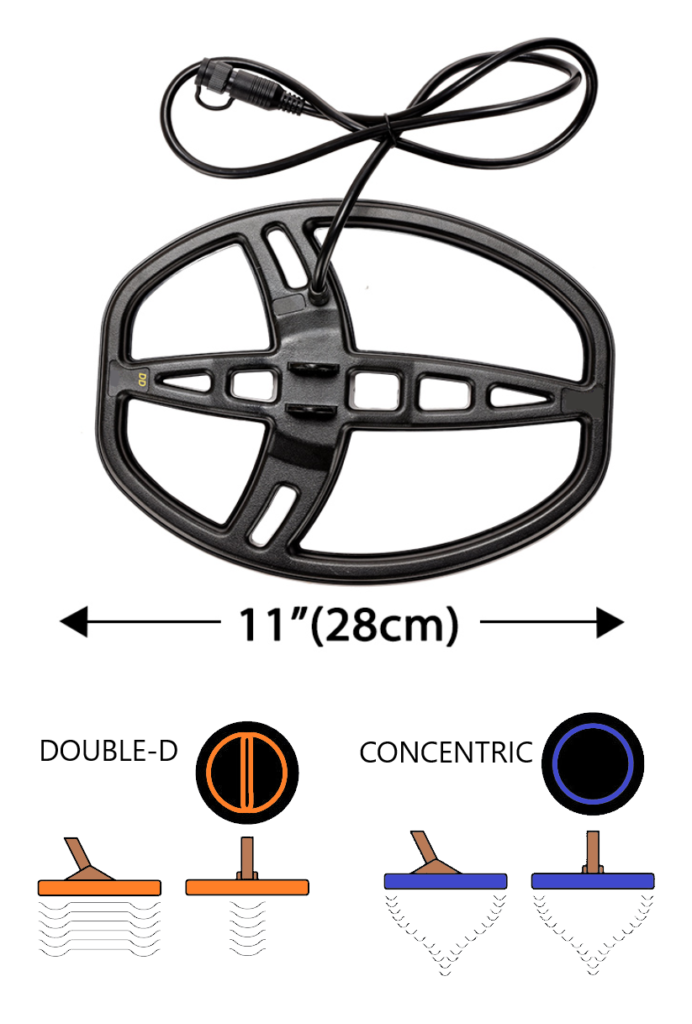
Coil Type
A Double D Coil is different, here is a REFLEX-G6 11-inch Double D Coil, now with this type of Coil the signal goes down from the centre bar (see image) that’s where the signal is leaving the Coil and going into the ground, narrower but broader than the Concentric at depth. I always thought a Double D coil should work better than a Concentric Coil, theoretically it has fewer objects beneath it at the same time and I never fully understood though for a long time why I seemed to have more success with Concentric Coils. What is true is that Concentric Coils work better in less mineralised ground, Double D is good for mineralised soil or if there is any interference in the ground. Now years ago, I found out I preferred Concentric Coils for certain areas and certain situations. After hundreds of hours using both Coil types with different detectors, I found they both these metal detector coil types have their place and they both work well in different conditions.
Coil Size
Usually, you’ll find smaller Coils like five, six, seven-inch Coils from many of the manufacturers are Concentric. So why is it that a Concentric Coil gets more depth compared to the same size Double D Coil in certain conditions? If you look at the diagram you will see the Concentric Coil search area goes down into the ground as a cone shape, so at depth the search area is tiny, you really need to overlap your search swing tight to get that full depth advantage. A Double D Coil although shallower has a much broader search area and is more stable on mineralised soil. However, the double D Coil is not as good at separating trash from the good targets at depth.
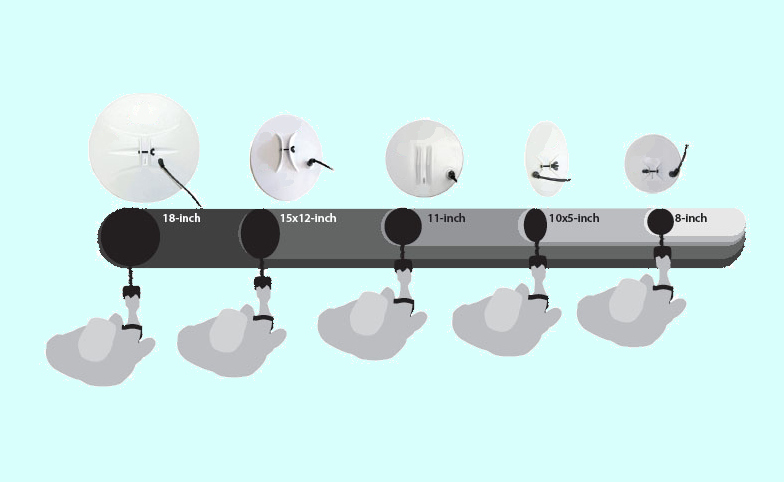
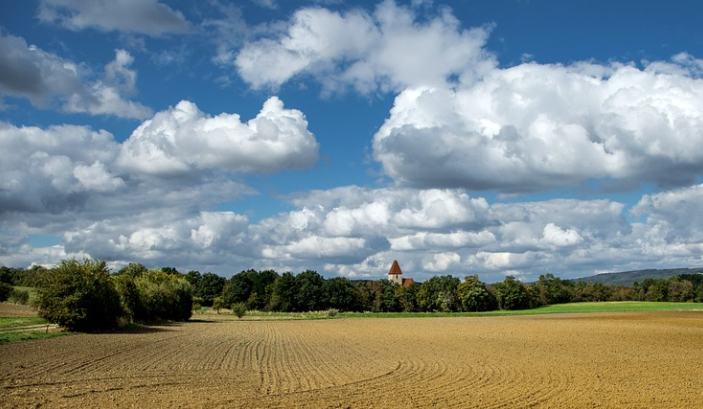
Busy Site
If you’re in a place that’s trashy with lots of iron objects, a large Coil is not as good as a small coil as it will have less targets to filter and process. Many metal detector manufacturers sell their machines with standard Coil sizes, 11 inch is a popular size as it can perform well in most conditions and gives reasonable search coverage. I would rather own one detector with multiple Coils both Concentric and Double D, I’m fortunate enough to own several detectors with assorted Coils, it works for me, I often change a Coil for varying situations it just depends on the conditions etc.
Large Fields
If you venture out onto fresh undetected ground and the fields are extensive then a large Coil is a sensible option, you will cover large areas of ground relatively quickly and hopefully find some ‘hotspots’, once you find an area where you are digging up old targets like lead, buttons, buckles etc. these are a good sign of occupation and potentially there will be some good finds amongst the debris. Now change Coil size, go down to a small Concentric Coil and carefully search the new ‘hotspot’ area again, I guarantee you will have some interesting finds!
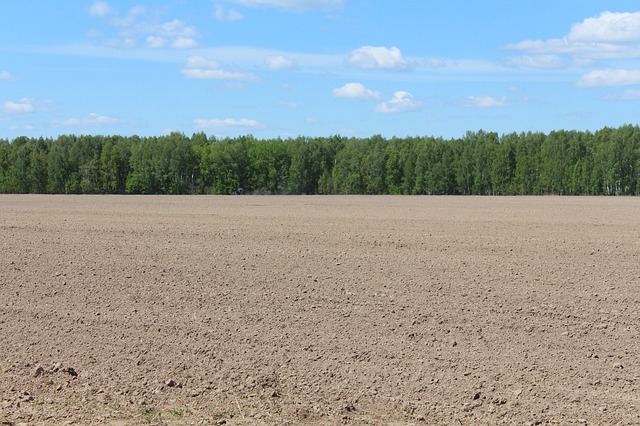
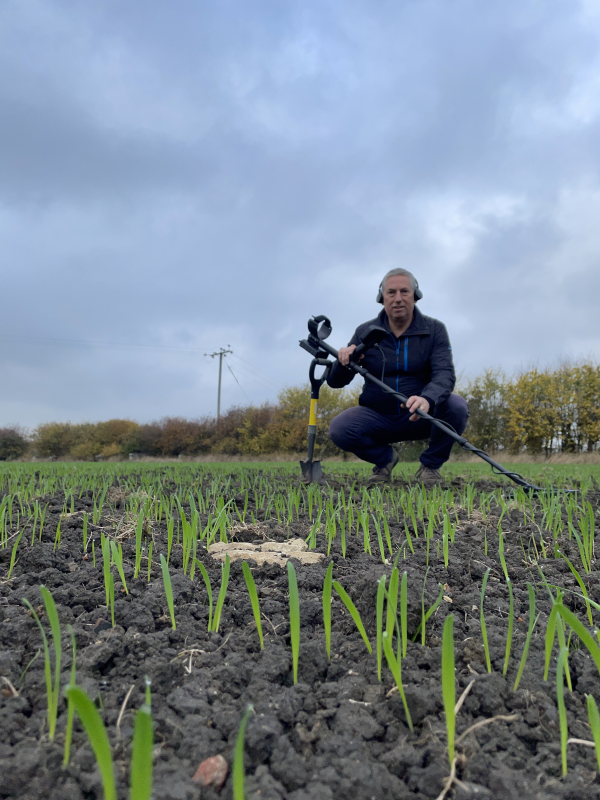
Get to know your metal detector
Get to know your machine well before swapping Coil sizes, when you really know your detector well and understand all the different signals and readouts it gives then you will recognise the variation in performance when you change a Coil size or type.
Well, I hope you enjoyed our latest article about Metal Detector Coil Types and sizes, please leave a comment if I have missed anything or you have additional information on this subject and come back soon to catchup with our latest tutorials and blog posts. See you soon!
As always we recommend joining one of the metal detecting organisations like the Association for Metal Detecting Sport, their membership offers many benefits including insurance.
